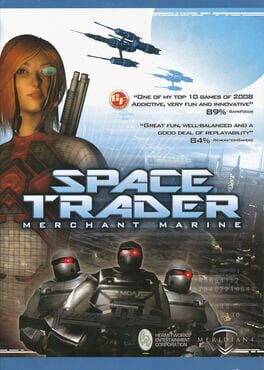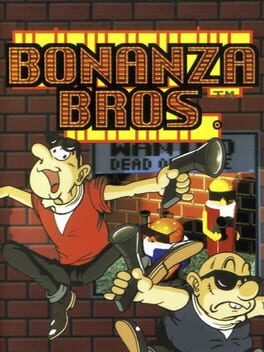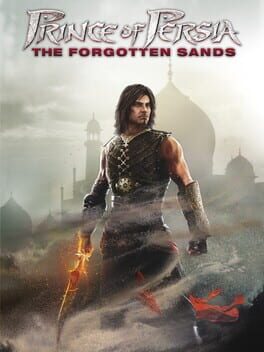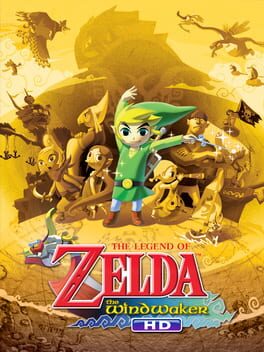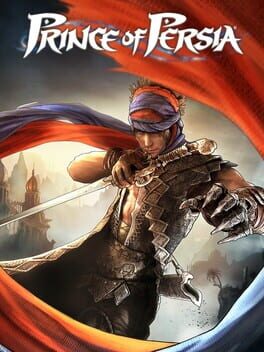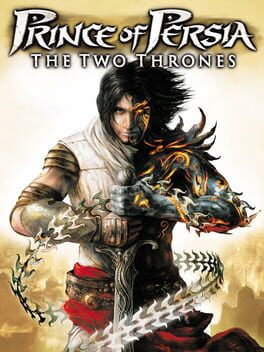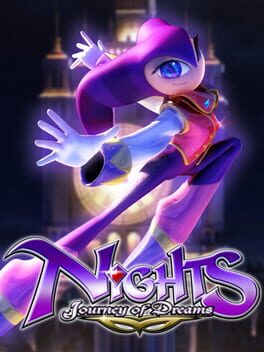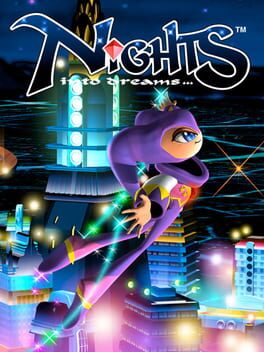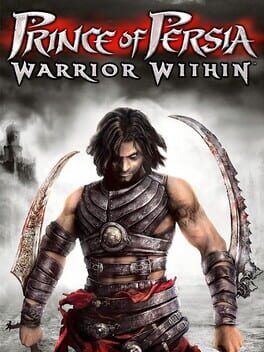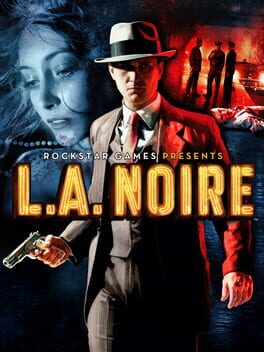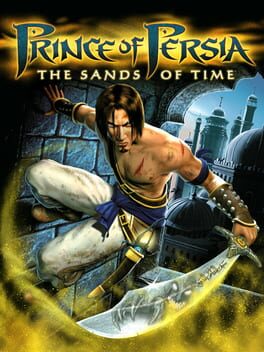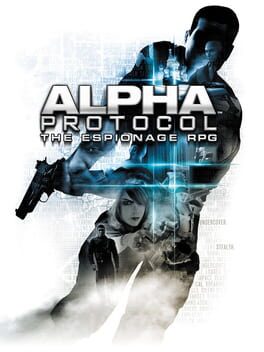MVK
I'm an "idea guy" when it comes to videogames. I see something unusual and I'm more interested in it than the vast majority of high budget games, which have to be overly familiar to make back their immense cost. Which explains why I at some point in my life decided to buy this game, which was released in 2008 but you could swear is at least a decade older by seeing it in motion.
Space Trader thinks it's a sci-fi game about being a trader, in which you'll have to travel to various planets and sell the goods you bought for a low price elsewhere, hopefully for a good profit (kinda topical), and you'll repeat this process until the end. Problem number 1: the trading makes no sense. There's no rhyme or reason to any of the goods getting higher or lower in price, so pretty quickly you smarten up to the fact that you want to just buy which ever the most costly thing is while also being the one that's trending the lowest, because chances are that even if the price doesn't go up that much by the time you travel elsewhere you will still make a solid 2-3-4-5 million in profits. So essentially risking anything is useless, since you're much more likely to be screwed by the RNG.
Problem 2: there's nothing meaningful to spend money on. They must have realized this, so this game takes a nonsensical arcadey approach: for every chapter (or "challenges" as the game calls them. Doesn't make any sense to me either) you'll have a time limit, in which you'll usually have to either have X amount of money which you'll have to make in the least travels possible, or you'll have to figure out which specific turn of events the game wants you to trigger, which is as exciting as you can imagine.
I wish that's all there was to the gameplay, but someone on the development team decided to add an FPS component to it, which I can imagine was developed by people whose entire experience with FPS games was watching Quake 3 for 5 minutes and winging it. Everything in here truly feels awful, doesn't help that they made about 4 maps in total which you will see a number of times (including Challenge 4, which is made up of three fights in the same map with slightly more enemies each time in a row, glad they included that myself).
So that about describes Space Trader: Merchant Marine. It's a game with a good idea, zero budget (as the suspiciously 2000s public domain-sounding soundtrack will prove, on top of everything else) and about the worst possible execution of that idea possible. It's an awful game, but considering it's about 6 hours long and I must've spent $1 for it, I can't be too upset at it. If anything, its attempts at doing anything are adorable.
Space Trader thinks it's a sci-fi game about being a trader, in which you'll have to travel to various planets and sell the goods you bought for a low price elsewhere, hopefully for a good profit (kinda topical), and you'll repeat this process until the end. Problem number 1: the trading makes no sense. There's no rhyme or reason to any of the goods getting higher or lower in price, so pretty quickly you smarten up to the fact that you want to just buy which ever the most costly thing is while also being the one that's trending the lowest, because chances are that even if the price doesn't go up that much by the time you travel elsewhere you will still make a solid 2-3-4-5 million in profits. So essentially risking anything is useless, since you're much more likely to be screwed by the RNG.
Problem 2: there's nothing meaningful to spend money on. They must have realized this, so this game takes a nonsensical arcadey approach: for every chapter (or "challenges" as the game calls them. Doesn't make any sense to me either) you'll have a time limit, in which you'll usually have to either have X amount of money which you'll have to make in the least travels possible, or you'll have to figure out which specific turn of events the game wants you to trigger, which is as exciting as you can imagine.
I wish that's all there was to the gameplay, but someone on the development team decided to add an FPS component to it, which I can imagine was developed by people whose entire experience with FPS games was watching Quake 3 for 5 minutes and winging it. Everything in here truly feels awful, doesn't help that they made about 4 maps in total which you will see a number of times (including Challenge 4, which is made up of three fights in the same map with slightly more enemies each time in a row, glad they included that myself).
So that about describes Space Trader: Merchant Marine. It's a game with a good idea, zero budget (as the suspiciously 2000s public domain-sounding soundtrack will prove, on top of everything else) and about the worst possible execution of that idea possible. It's an awful game, but considering it's about 6 hours long and I must've spent $1 for it, I can't be too upset at it. If anything, its attempts at doing anything are adorable.
1990
Bonanza Bros is a game that some people might remember as "those yellow guys from that Sonic racing game", which is the only reason why I know this game myself. It's a shame because despite the fact that this game has been completely forgotten, it's something unique and worth playing, as most Sega games used to be from this time period.
This is a stealth/action game, you have X items per level to get on a time limit and that means that every decision has to be taken quickly and a mistake such as going on a different route could screw up an entire run of a level. The weird controls and small screen space might seem disorienting at first, but there's a certain logic in how it works and getting a good time (or managing to finish a level when the time limit is almost up) is always satisfying.
The controls are more of an issue in the second half, when the game is more action than stealth. Suddenly you're asked to be very quick with your reflexes but since there's always a slight delay in every movement the little Bonanza character makes, it doesn't make for very fun or fair gameplay.
Despite that though, you can't go wrong with trying out Bonanza Bros and having 30 to 45 minutes of fun with it (seriously, with its 10 stages and lower difficulty than usual for a game of its time, it feels really short even for a Mega Drive game). It has a lot of personality, unique and fun gameplay, and you'll finally have some context for who those Lego ass looking guys are in that Sonic racing game.
This is a stealth/action game, you have X items per level to get on a time limit and that means that every decision has to be taken quickly and a mistake such as going on a different route could screw up an entire run of a level. The weird controls and small screen space might seem disorienting at first, but there's a certain logic in how it works and getting a good time (or managing to finish a level when the time limit is almost up) is always satisfying.
The controls are more of an issue in the second half, when the game is more action than stealth. Suddenly you're asked to be very quick with your reflexes but since there's always a slight delay in every movement the little Bonanza character makes, it doesn't make for very fun or fair gameplay.
Despite that though, you can't go wrong with trying out Bonanza Bros and having 30 to 45 minutes of fun with it (seriously, with its 10 stages and lower difficulty than usual for a game of its time, it feels really short even for a Mega Drive game). It has a lot of personality, unique and fun gameplay, and you'll finally have some context for who those Lego ass looking guys are in that Sonic racing game.
Prince of Persia The Forgotten Sands might be the most utilitarian game I played in a while. Following the half disaster that the reboot was Ubisoft probably felt the need to slow down with the IP and make something safe, hence this being a prequel, which has to be the number 1 sign that a developer doesn't really know what to do with a series.
There aren't many novelties to mention here, they reworked the combat for the 4th time in this five game series, going for functionality over originality. It's probably the most straight forward and functional combat the series ever had, but I think they lost a lot by turning it into a standard hack n slash game, making it especially jarring since the Prince will suddenly become a lot less mobile during combat.
There's also some PoP 2008 DNA still in this game, mainly in the controls and animations which don't quite feel right. It's not that it plays badly, but a lot of the weight that the Prince's movement and actions used to have isn't really here, instead favoring the 2008 approach of making it look nice instead of making it feel particularly good.
Outside of this there isn't much to say. There's a couple new platforming mechanics which are interesting and make things fun and varied, even though one of them comes into play too late into the game, and all in all this is pretty typical Prince of Persia fare. It's the kind of game that will provide entertainment if you decide to engage with it, but you don't miss much by not playing it, which would be fine if this was some sort of filler game (which seems to have been the original intention for it) but as of this review they haven't made a new Prince of Persia game since, and there doesn't seem to be anything new on the horizon either.
Then again, if Prince of Persia was about to become a series of entertaining but unexciting games like this one, maybe it's for the best.
There aren't many novelties to mention here, they reworked the combat for the 4th time in this five game series, going for functionality over originality. It's probably the most straight forward and functional combat the series ever had, but I think they lost a lot by turning it into a standard hack n slash game, making it especially jarring since the Prince will suddenly become a lot less mobile during combat.
There's also some PoP 2008 DNA still in this game, mainly in the controls and animations which don't quite feel right. It's not that it plays badly, but a lot of the weight that the Prince's movement and actions used to have isn't really here, instead favoring the 2008 approach of making it look nice instead of making it feel particularly good.
Outside of this there isn't much to say. There's a couple new platforming mechanics which are interesting and make things fun and varied, even though one of them comes into play too late into the game, and all in all this is pretty typical Prince of Persia fare. It's the kind of game that will provide entertainment if you decide to engage with it, but you don't miss much by not playing it, which would be fine if this was some sort of filler game (which seems to have been the original intention for it) but as of this review they haven't made a new Prince of Persia game since, and there doesn't seem to be anything new on the horizon either.
Then again, if Prince of Persia was about to become a series of entertaining but unexciting games like this one, maybe it's for the best.
Wind Waker is one of those games that has been discussed to death. I could give the usual beginning paragraph that talks about how controversial the game was on release because of its graphics, and how beloved it is now also because of those graphics. I'd say that I'm gonna spare you from reading about it but I guess I did just write about it.
In terms of gameplay, Wind Waker is fairly typical Zelda fare, and especially if you played Ocarina of Time before most of the ideas presented in this game will be very familiar. The main thing that differentiates it from that game and most other Zelda titles is how much weight is given to the overworld part when put against the dungeons (all 5 of them). This is the aspect that might make you love or hate this game.
If I had to be put on either camp, I'd be on the latter side. Not that the idea of exploring a mostly uncharted sea isn't intriguing, but the execution of it is sloppy and rushed. Mainly because there just isn't much to see and the act of sailing is very tedious. Combine the fact that you need to change whichever direction the wind is blowing every time, plus the fact that the map itself is pretty barren, and the tradeoff of finding a heart fragment or 200 rupies isn't all that worth it.
The game's rushed nature really shows itself when the game asks you to find 8 fragments of the Triforce, essentially doing what would otherwise be side quests, usually not very interesting ones. If I felt neutral towards the sailing originally, I started hating it by the end just because of how much time it was getting. There are some clever sections like finding the ghost ship, but by then I was completely checked out and was more waiting for the game to be over with.
And over it was pretty quickly, because what follows this is a really underwhelming final "dungeon". This is the part of the game that really feels like the developers had a lot more in mind that they had to scrap because they just didn't have enough time. It's a fairly simple series of challenges with items you should be very familiar with by then, combined with a very simple boss rush. The final couple bosses are kinda neat but even those feel like there should've been more to them.
Despite all the time spent wandering around aimlessly, I can't say I hated my time with Wind Waker. It will definitely be an acquired taste, and it might be a disappointingly small game (despite the premise), but the content that is there is usually of good quality. It plays well, the dungeons that are there are all very different from each other and pretty clever and interesting, and even at its worst it's at least creative. Worth playing, but stay far away if you hate padding and lack of clear direction.
In terms of gameplay, Wind Waker is fairly typical Zelda fare, and especially if you played Ocarina of Time before most of the ideas presented in this game will be very familiar. The main thing that differentiates it from that game and most other Zelda titles is how much weight is given to the overworld part when put against the dungeons (all 5 of them). This is the aspect that might make you love or hate this game.
If I had to be put on either camp, I'd be on the latter side. Not that the idea of exploring a mostly uncharted sea isn't intriguing, but the execution of it is sloppy and rushed. Mainly because there just isn't much to see and the act of sailing is very tedious. Combine the fact that you need to change whichever direction the wind is blowing every time, plus the fact that the map itself is pretty barren, and the tradeoff of finding a heart fragment or 200 rupies isn't all that worth it.
The game's rushed nature really shows itself when the game asks you to find 8 fragments of the Triforce, essentially doing what would otherwise be side quests, usually not very interesting ones. If I felt neutral towards the sailing originally, I started hating it by the end just because of how much time it was getting. There are some clever sections like finding the ghost ship, but by then I was completely checked out and was more waiting for the game to be over with.
And over it was pretty quickly, because what follows this is a really underwhelming final "dungeon". This is the part of the game that really feels like the developers had a lot more in mind that they had to scrap because they just didn't have enough time. It's a fairly simple series of challenges with items you should be very familiar with by then, combined with a very simple boss rush. The final couple bosses are kinda neat but even those feel like there should've been more to them.
Despite all the time spent wandering around aimlessly, I can't say I hated my time with Wind Waker. It will definitely be an acquired taste, and it might be a disappointingly small game (despite the premise), but the content that is there is usually of good quality. It plays well, the dungeons that are there are all very different from each other and pretty clever and interesting, and even at its worst it's at least creative. Worth playing, but stay far away if you hate padding and lack of clear direction.
2008
The annoyingly titled Prince of Persia comes out in a very awkward situation. Ubisoft released Assassin's Creed a year prior, which was a major hit, but they couldn't yet afford to depend on that IP since it was still fairly unproven, and considering that videogame series never end until people get sick of them, despite POP ending pretty well in Two Thrones, they had to come up with a new game in the series. Perfect timing too since 2008 was around the time where videogame reboots became really popular, so it was a no-brainer to do what Sands of Time did for the series before. Sadly this game just made me wish I was playing Sands of Time instead.
In an attempt to reinvent the series pretty much everything is different here, even where there's no reason to change: from "minor" things like the control layout being completely different despite this Prince having around the same moves that the previous one had, to major ones like how the game is structured and how the platforming works.
The structure here is kinda similar to Warrior Within, but with more of a point: instead of having a linear game in an interconnected world, now you have the choice of what you want to tackle next. Here's the problem: because you can reach most parts of the game any time you want, they all had to be fairly similar in difficulty and content. Meaning that it all blends in after a while, making this game a very repetitive experience, especially when you realize that every level has pretty much the same pacing and structure.
But even if they didn't go that route, and even if they didn't make you grab a bunch of collectibles arbitrarily for padding purposes, the whole game has been completely reworked seemingly to play itself as much as possible. Everything now has massive scripting around it, every jump, every action basically just requires you to press the correct button somewhere around the time the animation is about to play in. When I figured this out I mostly stopped even using the analogue stick, mashing whichever button is required to make the Prince go forward usually suffices. It turns the trademark great platforming of the series into what is essentially boring busywork.
It's a shame that the great art direction was wasted on a game so bland and unassuming. It's kinda baffling to see a series degrade so much in just a couple years, but it's what we ended up with. In their attempt to make something new and exciting, they ironically did the exact opposite, creating a game which somehow feels both really small and less than the sum of its parts, despite the work that obviously went into it.
In an attempt to reinvent the series pretty much everything is different here, even where there's no reason to change: from "minor" things like the control layout being completely different despite this Prince having around the same moves that the previous one had, to major ones like how the game is structured and how the platforming works.
The structure here is kinda similar to Warrior Within, but with more of a point: instead of having a linear game in an interconnected world, now you have the choice of what you want to tackle next. Here's the problem: because you can reach most parts of the game any time you want, they all had to be fairly similar in difficulty and content. Meaning that it all blends in after a while, making this game a very repetitive experience, especially when you realize that every level has pretty much the same pacing and structure.
But even if they didn't go that route, and even if they didn't make you grab a bunch of collectibles arbitrarily for padding purposes, the whole game has been completely reworked seemingly to play itself as much as possible. Everything now has massive scripting around it, every jump, every action basically just requires you to press the correct button somewhere around the time the animation is about to play in. When I figured this out I mostly stopped even using the analogue stick, mashing whichever button is required to make the Prince go forward usually suffices. It turns the trademark great platforming of the series into what is essentially boring busywork.
It's a shame that the great art direction was wasted on a game so bland and unassuming. It's kinda baffling to see a series degrade so much in just a couple years, but it's what we ended up with. In their attempt to make something new and exciting, they ironically did the exact opposite, creating a game which somehow feels both really small and less than the sum of its parts, despite the work that obviously went into it.
2017
Chances are that you've heard of, seen, or played Everybody's Golf in your life. Unless you're American, then you'd know it as Hot Shots Golf (YIKES).
Either way, you're probably familiar with the gameplay formula here: arcadey golf that is simple enough in theory but complicated enough in application to be really engaging for hours. What's different here compared to the other games in the series (which at least had numbers or subtitles, so I can recognize which ones they are) isn't the gameplay itself but what's around it.
Namely the character building. You now create your character (or multiple of them if you so desire, the creation suite is really robust) and it will get better at specific things gradually, and depending on what equipment you use and how you play. This actually adds a lot to the game as every player can come up with their own solutions and perfect plays, while refining their own skills with the control system and physics.
But that's not all, as Everybody's Golf fancies itself a great "fucking around" game. You can fish, which comes with its own leveling and equipment, roam around various camps either on foot or with various types of carts, play online, do all these things in online courses, exchange profiles, and so on. It even comes up with a meaty single player experience if you don't desire to pay for PS+ (which I don't).
Everybody's Golf is a game that gives you a lot to sink your teeth into, while still doing it with style and remembering that it's all supposed to be chill and fun. Can't really ask anything more out of this game, which goes above and beyond giving players reasons to come back time and time again, making it a great purchase for anyone even just tangentially interested in golf games (or just fun arcade sports games).
Either way, you're probably familiar with the gameplay formula here: arcadey golf that is simple enough in theory but complicated enough in application to be really engaging for hours. What's different here compared to the other games in the series (which at least had numbers or subtitles, so I can recognize which ones they are) isn't the gameplay itself but what's around it.
Namely the character building. You now create your character (or multiple of them if you so desire, the creation suite is really robust) and it will get better at specific things gradually, and depending on what equipment you use and how you play. This actually adds a lot to the game as every player can come up with their own solutions and perfect plays, while refining their own skills with the control system and physics.
But that's not all, as Everybody's Golf fancies itself a great "fucking around" game. You can fish, which comes with its own leveling and equipment, roam around various camps either on foot or with various types of carts, play online, do all these things in online courses, exchange profiles, and so on. It even comes up with a meaty single player experience if you don't desire to pay for PS+ (which I don't).
Everybody's Golf is a game that gives you a lot to sink your teeth into, while still doing it with style and remembering that it's all supposed to be chill and fun. Can't really ask anything more out of this game, which goes above and beyond giving players reasons to come back time and time again, making it a great purchase for anyone even just tangentially interested in golf games (or just fun arcade sports games).
It's another year and it's another Prince of Persia game. This is now a mainstream IP which means that Ubisoft has expectations to meet with it, did they reach them? Since you can see the rating I'm sure you know what my opinion is.
This is basically Sands of Time 2, with a couple of additions (Dark Prince and some optional stealth). It is Sands of Time almost exactly, complete with having a character narrating the story in the background and asking you if you wish to save the game. Understandable approach considering they had a year to make this and Warrior Within was fairly polarizing.
Playing it safe and smart is pretty much the point of Two Thrones. It gives a satisfying, polished ending to the trilogy and gives more of the at this point familiar but still really fun Prince of Persia gameplay, the platforming is really good, the puzzles, bosses and gameplay diversions are fun and inventive, and it all goes down very smoothly. It may not have the creative spark that Sands of Time had, but it's hard to complain about a game that is so consistently fun to play.
This is basically Sands of Time 2, with a couple of additions (Dark Prince and some optional stealth). It is Sands of Time almost exactly, complete with having a character narrating the story in the background and asking you if you wish to save the game. Understandable approach considering they had a year to make this and Warrior Within was fairly polarizing.
Playing it safe and smart is pretty much the point of Two Thrones. It gives a satisfying, polished ending to the trilogy and gives more of the at this point familiar but still really fun Prince of Persia gameplay, the platforming is really good, the puzzles, bosses and gameplay diversions are fun and inventive, and it all goes down very smoothly. It may not have the creative spark that Sands of Time had, but it's hard to complain about a game that is so consistently fun to play.
Against all odds and perhaps common sense, Sonic Team decides to give the Nights series a second go, a solid 12 years after the original game. A lot has changed in terms of consumer expectations in that length of time, and a lot has changed in SEGA/Sonic Team themselves, which makes this a very interesting sequel if nothing else.
Something that changed and is readily noticeable, the game has a lot more story this time around. There's a lot of it, it's pretty boring, it's fine enough for kids. This should sound familiar, because that's the same situation for the studio's 3D Sonic games. I understand times changing and all, but I feel like giving detailed lore and explanations to the game's world loses part of the charm of the original, where you don't really know what you're even looking at most of the time.
Another concession they had to make was making the game longer, and longer it is. The original game will take less than 2 hours, this one will take... about 3 of actual gameplay. Not sure it was really worth it either, since a lot of this extra content is basically filler.
Some of it is neat, like the levels where you have to make the highest link combo possible to get a good rank, but a bunch of this is pretty worthless. Harder versions of boss fights, really bad 3d platforming sections (which again, seems very counterproductive considering what the appeal of the game is) and other such sections that seem to exist only to pad things out, while hurting replayability.
The "main" levels themselves are a bit different now: instead of trying to make the most points within the time limit, now you'll have to chase a bird who has a key, and getting that key within the first go around of a level will mean getting a very good rank. The ranking in this game now is very geared towards the time taken to complete any given level, which is probably another concession to make the game more appealing to most people, but a lot of the uniqueness and the addictive flow is lost from the original because of this approach. Doing combos and getting points still matters to an extent if you want that A rank, but the game is so geared towards getting a good time that most players will probably not bother with the minutiae.
Sadly Journey of Dreams is a lesser version of Nights into Dreams in pretty much every way. It's a charming game, and it is fun still about half of the time, but it can't really get anything going because there's too much going on in its very short timeframe. Ironically, despite changing series, this game falls into the same trappings of a lot of Sonic Team games from this time period. It's a shame it wasn't better, but I am glad they made another attempt at a Nights game. Now I'll wait another 15 years before they try it again again.
Something that changed and is readily noticeable, the game has a lot more story this time around. There's a lot of it, it's pretty boring, it's fine enough for kids. This should sound familiar, because that's the same situation for the studio's 3D Sonic games. I understand times changing and all, but I feel like giving detailed lore and explanations to the game's world loses part of the charm of the original, where you don't really know what you're even looking at most of the time.
Another concession they had to make was making the game longer, and longer it is. The original game will take less than 2 hours, this one will take... about 3 of actual gameplay. Not sure it was really worth it either, since a lot of this extra content is basically filler.
Some of it is neat, like the levels where you have to make the highest link combo possible to get a good rank, but a bunch of this is pretty worthless. Harder versions of boss fights, really bad 3d platforming sections (which again, seems very counterproductive considering what the appeal of the game is) and other such sections that seem to exist only to pad things out, while hurting replayability.
The "main" levels themselves are a bit different now: instead of trying to make the most points within the time limit, now you'll have to chase a bird who has a key, and getting that key within the first go around of a level will mean getting a very good rank. The ranking in this game now is very geared towards the time taken to complete any given level, which is probably another concession to make the game more appealing to most people, but a lot of the uniqueness and the addictive flow is lost from the original because of this approach. Doing combos and getting points still matters to an extent if you want that A rank, but the game is so geared towards getting a good time that most players will probably not bother with the minutiae.
Sadly Journey of Dreams is a lesser version of Nights into Dreams in pretty much every way. It's a charming game, and it is fun still about half of the time, but it can't really get anything going because there's too much going on in its very short timeframe. Ironically, despite changing series, this game falls into the same trappings of a lot of Sonic Team games from this time period. It's a shame it wasn't better, but I am glad they made another attempt at a Nights game. Now I'll wait another 15 years before they try it again again.
Nights into Dreams is a game that is hard to categorize, and a game that I'm sure was a nightmare to market (hence it completely bombing everywhere).
Despite it not really controlling like one, the game functions very similarly to a current 3D Sonic game: you want to get the most points possible and score the best rank, by doing combos or chain actions and what have you.
The difference is though that you're not actually supposed to finish stages in the quickest possible way; the timer the game gives you is actually the time you have to go around the stage over and over and score the most points you can before getting out and moving on to the next segment of the level. This creates a great risk vs reward situation at times where you have to make a very quick decision on whether you want to make just another trip before leaving or if you don't think those 20 seconds or less are enough.
When you realize this, you start understanding the entire flow of the game, the level design starts looking better and better, and the frantic pace of the game and initial sensory overload on the visuals becomes second nature; in general, everything starts to click. This will only happen if you do want to replay this game multiple times, which is another hard sell about this game: if you want to just get it over with once, it will be done in less than 2 hours and you won't really get much out of the experience.
Having said that though, I really wouldn't have minded one more stage per character, because as it is the game only has 7 of them, one of which is repeated twice. They're all great and very well designed mind you, but they go from training wheels to "possible game over" really quickly.
If you're into arcadey games that are meant to be replayed over and over, you can't go wrong with Nights into Dreams. It might take a bit to get used to its unique systems and controls (even the whole aesthetics of it are probably an acquired taste), but if given the time, there's a great game worth discovering and rediscovering here.
Despite it not really controlling like one, the game functions very similarly to a current 3D Sonic game: you want to get the most points possible and score the best rank, by doing combos or chain actions and what have you.
The difference is though that you're not actually supposed to finish stages in the quickest possible way; the timer the game gives you is actually the time you have to go around the stage over and over and score the most points you can before getting out and moving on to the next segment of the level. This creates a great risk vs reward situation at times where you have to make a very quick decision on whether you want to make just another trip before leaving or if you don't think those 20 seconds or less are enough.
When you realize this, you start understanding the entire flow of the game, the level design starts looking better and better, and the frantic pace of the game and initial sensory overload on the visuals becomes second nature; in general, everything starts to click. This will only happen if you do want to replay this game multiple times, which is another hard sell about this game: if you want to just get it over with once, it will be done in less than 2 hours and you won't really get much out of the experience.
Having said that though, I really wouldn't have minded one more stage per character, because as it is the game only has 7 of them, one of which is repeated twice. They're all great and very well designed mind you, but they go from training wheels to "possible game over" really quickly.
If you're into arcadey games that are meant to be replayed over and over, you can't go wrong with Nights into Dreams. It might take a bit to get used to its unique systems and controls (even the whole aesthetics of it are probably an acquired taste), but if given the time, there's a great game worth discovering and rediscovering here.
You ever wondered about whether there was a game that used every single feature of the Wii U? No? Well ok then.
This is entirely a puzzle game that will ask you to change your gaze between the Wii U gamepad and the TV constantly, to mostly decent effect. The designers were smart in making this an entirely non-action affair as it would've been very messy, but considering the relaxed pace of the game checking the gamepad to fix some settings and "testing" them on the field actually is very natural.
Another clever thing is how the gamepad is used to simulate being in an actual spaceship, with its own OS and interface. There was clearly tons of attention to detail put into the "immersive" aspect of the game, which also continues in its storytelling. While light, it actually is fairly interesting, and any piece of media that starts with a satirical fake ad is always awesome in my book.
What isn't so awesome is this game after all the luster wears off. After a while there's a sense of repetition that starts setting in, because while the obstacles to overcome technically change fairly frequently, all you're doing still boils down to checking your current stats, tuning them for the current situation, and proceeding if you tuned the ship correctly. This is a game that actually gets easier the more you play it, because there's no real curveball thrown at the player after the first 30 minutes.
When it comes down to it, Affordable Space Adventures is an interesting puzzle game that is solid enough. If you're still interested in the Wii U and its gimmicks this game is very much recommended, as it's one of the only products of its kind to use literally everything from the touchscreen, to the double screen aspect, to even Miiverse. I just wish this game had more meat and less potatoes, to make a cringey food analogy.
This is entirely a puzzle game that will ask you to change your gaze between the Wii U gamepad and the TV constantly, to mostly decent effect. The designers were smart in making this an entirely non-action affair as it would've been very messy, but considering the relaxed pace of the game checking the gamepad to fix some settings and "testing" them on the field actually is very natural.
Another clever thing is how the gamepad is used to simulate being in an actual spaceship, with its own OS and interface. There was clearly tons of attention to detail put into the "immersive" aspect of the game, which also continues in its storytelling. While light, it actually is fairly interesting, and any piece of media that starts with a satirical fake ad is always awesome in my book.
What isn't so awesome is this game after all the luster wears off. After a while there's a sense of repetition that starts setting in, because while the obstacles to overcome technically change fairly frequently, all you're doing still boils down to checking your current stats, tuning them for the current situation, and proceeding if you tuned the ship correctly. This is a game that actually gets easier the more you play it, because there's no real curveball thrown at the player after the first 30 minutes.
When it comes down to it, Affordable Space Adventures is an interesting puzzle game that is solid enough. If you're still interested in the Wii U and its gimmicks this game is very much recommended, as it's one of the only products of its kind to use literally everything from the touchscreen, to the double screen aspect, to even Miiverse. I just wish this game had more meat and less potatoes, to make a cringey food analogy.
After the major success of Sands of Time, there were many potential directions to take the new Prince of Persia series in. Maybe something that ironed out some of the issues, maybe make it a bit deeper, maybe go in a new direction. So the obvious next step was Godsmack.
Not that I mind, I think it's fucking awesome. It creates a really bad whiplash effect if you play SoT before this but I find that it works fine for what it's going for. It's not just a change in art direction though: now the game takes place in an interconnected world instead of a typical linear game, and there's much more of an emphasis on combat, which has been reworked.
The problem is that because of this the fantastic sense of pacing and escalation of the previous game is completely gone, since you're constantly going back and forth through the map. Since this isn't a metroidvania or anything, but a completely linear experience, that means tons of backtracking, tons of seeing the same few sections (I counted, there's a few that you'll have to see about 5 times), and generally a lot more repetition, as the game starts wearing itself thin around the end.
What about that reworked combat? Well, there's more going on technically. But with that added depth I don't believe much was actually gained, as the combat itself remains on that level of "fine" that SoT was on, but now there's a lot more of it. I even skipped a bunch of encounters towards the end because I got quite tired of fighting the same enemies for the 423rd time.
But the major sin of this game is how unpolished it is. Glitches everywhere, in combat especially, music that at times doesn't seem to know if it should play or not, sometimes doesn't even know what track it should even play, it's a mess. There's a specific enemy that I was supposed to attack while wallrunning but a combination of the awful camera angle, the awful hitbox and the game not registering my attack annoyed me so much that I just used a friend's save. I never do this for games, but I did it for this one.
Warrior Within is ultimately a good game (the platforming is as good if not better than Sands of Time, sans some really badly thought out moments, and in general the gameplay beats and controls are still there) but it left me a bit disappointed when it was all said and done. Completely opposite to Sands of Time, which did the absolute best with what it presented, this feels like a game that was rushed to market and did what it could while also trying to introduce new ideas and improve the formula. Worth playing, but be prepared to ask "what was that?" about once every half hour.
Not that I mind, I think it's fucking awesome. It creates a really bad whiplash effect if you play SoT before this but I find that it works fine for what it's going for. It's not just a change in art direction though: now the game takes place in an interconnected world instead of a typical linear game, and there's much more of an emphasis on combat, which has been reworked.
The problem is that because of this the fantastic sense of pacing and escalation of the previous game is completely gone, since you're constantly going back and forth through the map. Since this isn't a metroidvania or anything, but a completely linear experience, that means tons of backtracking, tons of seeing the same few sections (I counted, there's a few that you'll have to see about 5 times), and generally a lot more repetition, as the game starts wearing itself thin around the end.
What about that reworked combat? Well, there's more going on technically. But with that added depth I don't believe much was actually gained, as the combat itself remains on that level of "fine" that SoT was on, but now there's a lot more of it. I even skipped a bunch of encounters towards the end because I got quite tired of fighting the same enemies for the 423rd time.
But the major sin of this game is how unpolished it is. Glitches everywhere, in combat especially, music that at times doesn't seem to know if it should play or not, sometimes doesn't even know what track it should even play, it's a mess. There's a specific enemy that I was supposed to attack while wallrunning but a combination of the awful camera angle, the awful hitbox and the game not registering my attack annoyed me so much that I just used a friend's save. I never do this for games, but I did it for this one.
Warrior Within is ultimately a good game (the platforming is as good if not better than Sands of Time, sans some really badly thought out moments, and in general the gameplay beats and controls are still there) but it left me a bit disappointed when it was all said and done. Completely opposite to Sands of Time, which did the absolute best with what it presented, this feels like a game that was rushed to market and did what it could while also trying to introduce new ideas and improve the formula. Worth playing, but be prepared to ask "what was that?" about once every half hour.
2011
LA Noire is a game that I really hoped would be more interesting than it ended up being. It is entertaining enough, it has that typical Rockstar charm (and Rockstar's tendency to burn money on the screen for the most minute things) but it really feels like a missed opportunity.
The game takes place immediately after WW2, which is a great setting, but it feels like the devs were so enamoured with it that they forgot to put any substance in any part of the game.
The gameplay itself is so simplistic and scripted that it may as well not even be there, the investigation segments are really basic and the interrogations are sort of interesting but really badly handled (and it never matters how well you do in any of them). Same can be said for the open world, which was a complete waste of money and time to even have, it looks great but it serves so little purpose that I ended up just skipping the car rides every time.
So all we're really left with is the story, but I felt like it was paced all wrong. The game introduces its characters in the first hour, then everything stops for a solid 10 hours, and at the very last couple hours a story starts to materialize. And even then you're not given much to care for considering that by then the game is scrambling to get some kind of structure back, but it all feels very hollow, especially the very anti-climactic ending.
What I will say about the game though is that the creators really cared for what they were making, and it shows on every aspect of it. Too bad that it didn't really translate to a compelling experience.
The game takes place immediately after WW2, which is a great setting, but it feels like the devs were so enamoured with it that they forgot to put any substance in any part of the game.
The gameplay itself is so simplistic and scripted that it may as well not even be there, the investigation segments are really basic and the interrogations are sort of interesting but really badly handled (and it never matters how well you do in any of them). Same can be said for the open world, which was a complete waste of money and time to even have, it looks great but it serves so little purpose that I ended up just skipping the car rides every time.
So all we're really left with is the story, but I felt like it was paced all wrong. The game introduces its characters in the first hour, then everything stops for a solid 10 hours, and at the very last couple hours a story starts to materialize. And even then you're not given much to care for considering that by then the game is scrambling to get some kind of structure back, but it all feels very hollow, especially the very anti-climactic ending.
What I will say about the game though is that the creators really cared for what they were making, and it shows on every aspect of it. Too bad that it didn't really translate to a compelling experience.
2015
Bloodborne was a Bloodbore.
Not really, I just wanted to make the dumb joke. What the game was though was underwhelming. You have your typical staples of the Souls series: the checkpoints, the oppressive atmosphere, the simplistic combat, the awful camera, you know, the usual. It all feels very been there done that.
The game constantly feels like it's missing that something else to really make it stand out, there's attempts to make the combat system more interesting but a lot of that came at the cost of removing any variety that the previous games, while not great themselves, at least had. Outside of very specific parts, a lot of this is a repetitive game of guessing which elevator will bring you to the boss fight the quickest, running away from the very slow enemies, and engaging with the next mediocre boss fight.
There's more I could say perhaps, but this is a game that really left me with not much to think about. A couple of interesting layouts, a couple of interesting moments, a few interesting-looking locations, but all in all this is just kind of a mediocre action game in a series that really needs some kind of new tricks.
Or at least a game that isn't about humans getting corrupted and transforming into feral creatures, I'd even take that
Not really, I just wanted to make the dumb joke. What the game was though was underwhelming. You have your typical staples of the Souls series: the checkpoints, the oppressive atmosphere, the simplistic combat, the awful camera, you know, the usual. It all feels very been there done that.
The game constantly feels like it's missing that something else to really make it stand out, there's attempts to make the combat system more interesting but a lot of that came at the cost of removing any variety that the previous games, while not great themselves, at least had. Outside of very specific parts, a lot of this is a repetitive game of guessing which elevator will bring you to the boss fight the quickest, running away from the very slow enemies, and engaging with the next mediocre boss fight.
There's more I could say perhaps, but this is a game that really left me with not much to think about. A couple of interesting layouts, a couple of interesting moments, a few interesting-looking locations, but all in all this is just kind of a mediocre action game in a series that really needs some kind of new tricks.
Or at least a game that isn't about humans getting corrupted and transforming into feral creatures, I'd even take that
Remember when Ubisoft made games that were meant for entertainment instead of tricking people into "engaging" with their products? I do at least.
This is one of those rare games where everything just clicks into place, the platforming is great, the puzzles are good, the combat itself serves its purpose fine (and I remember it being way worse when I first played it around a decade ago). All of this is kept together by some really good pacing, the designers knew just when to ramp up the action and when to make things calmer, how many times in a row they should use a specific obstacle/mechanic before it got stale, you really can't ask much more out of the game.
What you could ask for though would be a little less waves of enemies at times, half of the encounters seem to go just a wave too long, it doesn't even serve much of a purpose since you can usually heal during the time it takes for the enemies to spawn again. A better camera would've been fine as well, a few times it can be difficult to figure out where your next jumping point is.
These issues though are greatly outweighed by the pros, plus a number of really good decisions on smaller things (the time rewind mechanic is basically iconic, the way the game presents itself is also really original to this day).
If you haven't played this game absolutely do so, it might seem very quaint at first since it introduces a lot of things that most action games made afterwards took, but you'll realize that very few if any of them execute these concepts with such efficiency.
This is one of those rare games where everything just clicks into place, the platforming is great, the puzzles are good, the combat itself serves its purpose fine (and I remember it being way worse when I first played it around a decade ago). All of this is kept together by some really good pacing, the designers knew just when to ramp up the action and when to make things calmer, how many times in a row they should use a specific obstacle/mechanic before it got stale, you really can't ask much more out of the game.
What you could ask for though would be a little less waves of enemies at times, half of the encounters seem to go just a wave too long, it doesn't even serve much of a purpose since you can usually heal during the time it takes for the enemies to spawn again. A better camera would've been fine as well, a few times it can be difficult to figure out where your next jumping point is.
These issues though are greatly outweighed by the pros, plus a number of really good decisions on smaller things (the time rewind mechanic is basically iconic, the way the game presents itself is also really original to this day).
If you haven't played this game absolutely do so, it might seem very quaint at first since it introduces a lot of things that most action games made afterwards took, but you'll realize that very few if any of them execute these concepts with such efficiency.
2010
This is a game that barely runs without blowing up your hardware, where the gameplay is completely broken and fairly simple to begin with, glitches everywhere, obviously rushed to the market, I could go on forever.
But it's so fun. The writing is interesting and entertaining, the reaction to your choices is great (you can play this game 5 times and still discover new things) and at least the game is broken regardless of what class you choose, so it is varied in its simplicity at least.
Very much recommended, just don't play it on higher than Normal
But it's so fun. The writing is interesting and entertaining, the reaction to your choices is great (you can play this game 5 times and still discover new things) and at least the game is broken regardless of what class you choose, so it is varied in its simplicity at least.
Very much recommended, just don't play it on higher than Normal
